“The Communist Manifesto” besides mentioning the basic contents about the development of human society; the historical mission of the working class; the birth of the Communist Party; the basic principles of scientific socialism... also mentions the issues of cultural and human development. Up to now, those thoughts and viewpoints still retain their value and profound topicality.
 |
• THE ISSUES OF CULTURAL AND HUMAN DEVELOPMENT IN THE “MANIFESTO OF THE COMMUNIST PARTY”
First drafted by Karl Marx and Friedrich Engels, and announced to the world on February 24, 1848, the “Manifesto of the Communist Party” (Manifesto) is the first platform of the international communist and workers’ movement, the banner leading the working class and working people to fight against the oppression and exploitation of capitalism, to advance to socialism and to communism. The birth of the Manifesto was a decisive turning point in the development of the international communist and workers’ movement, marking the fundamental formation of Marxist theory. Aimed at the main target of the working class and hard-working people, the Manifesto was written in a simple, clear, concise manner, translated into many languages and widely disseminated worldwide. The Declaration is considered a handbook and a powerful, sharp "weapon" in terms of ideology and theory to raise high the revolutionary flag, eliminate oppression and injustice, and aim to build a fair, prosperous, and happy society.
In addition to the basic contents on the development of human society; the historical position of the bourgeoisie; the historical mission of the working class; the birth and pioneering nature of the Communist Party; the basic principles of scientific socialism, a number of strategic principles and revolutionary tactics... the Manifesto also mentions the basic contents on the development of culture and people, laying the foundation for the process of building and developing culture and people comprehensively in the present and the future.
Perspectives on cultural development
Before writing the Manifesto, Karl Marx and Friedrich Engels had convincing explanations with scientific arguments and practical evidence about the origin, nature and function of culture. In the work Dialectics of Nature (written between 1873 and 1886), on the basis of inheriting the achievements of natural science, Friedrich Engels argued that: Culture is the result, the product created by humans; cultural creation is a human attribute, and an important sign to distinguish between humans and animals. From making rudimentary objects, serving the essential needs of material life, humans know how to make jewelry, fine arts, and know how to imitate and reproduce nature and human life through paintings. The act of "molding matter according to the law of beauty" reflects the needs, aspirations and wishes of humans in moving towards the values of truth, goodness and beauty.
 |
With a dialectical and objective view, placing humans in relation to nature and the development process of socio- economic forms, Karl Marx and Friedrich Engels believe that talking about culture means talking about the "human nature force" or "human level" of humans. That level and capacity are produced and recreated in the process of humans interacting and transforming nature. Accordingly, culture is not only an attribute, expressing the human nature of humans, but it also reflects the process of humans constantly creating to create material and spiritual values, promoting the development of history and society.
Based on dialectical and historical materialism, in the Manifesto, Karl Marx and Friedrich Engels argued that culture is an important field of social life, closely related to and influenced by economic, political and social factors. Culture does not only belong to each individual but also to the community, class and, more broadly, to the nation and people.
The emphasis on culture in the Declaration is to place culture in relation to the context of the era, class, and society, thereby emphasizing that culture belongs to the field of spiritual life, subject to the influence and influence of the economic, political, and social context. Emphasizing the relationship between culture and politics: "What does the history of ideas prove, if not that spiritual production also changes according to material production? The dominant ideas of an era are always only the ideas of the ruling class" (1). That shows that culture is always subject to the influence of the infrastructure and economic and political foundation of a regime that will determine the appearance and characteristics of that culture.
A major cultural idea mentioned in the Manifesto is the epochal predictions about the laws of movement and development of culture. The interpretations of Karl Marx and Friedrich Engels show that in the 19th century, with the constant improvement of machinery and labor tools, the expansion of markets, investment in inventions and patents; the thorough application of scientific and technological achievements, the bourgeoisie created abundant wealth; profoundly transformed social life, including the cultural field.
The continuous development of productive forces has had a strong impact on culture. Through the economic and commercial channels, through the process of exchanging products, expanding and searching for markets, the bourgeoisie has created an important driving force, stimulating the process of exchange and acculturation between cultures. Explaining this issue, C. Marx and F. Engels wrote: "By squeezing the world market, the bourgeoisie has made production and consumption of all countries have a world character" (2). “In place of the old needs satisfied by domestic products, new needs arise, demanding to be satisfied by products brought from the most distant regions and countries. In place of the former isolation of localities and nations which were self-sufficient, we see the development of universal relations, universal dependence between nations. And as material production is like this, so is spiritual production. The fruits of the spiritual activities of one nation become the common property of all nations. National unilateralism and one-sidedness are increasingly impossible; and from the various national and local literatures, a world literature is emerging” (3). This thesis of C. Marx and F. Engels pointed out the objective necessity of the interaction and exchange process between peoples, nations, and cultures, the main cause of which is the development of productive forces and dominant economic factors. The above thesis is also the contemporary forecast of Karl Marx and Friedrich Engels about the trend of cultural globalization when nations and peoples are getting closer together. The premonitions about "a world literature" combined from "multi-faceted national and local literatures" mentioned by Karl Marx and Friedrich Engels from 1848 to the present still retain their value and spirit of the times, showing the movement and development of literature and culture in the world with the harmonious combination of the general and the particular; between the universality of the common nature of all humanity and the particularity, the uniqueness of communities, nations, and countries.
However, due to the absolute goal of profit, the emphasis on economic value as well as the will of the ruling class, the bourgeoisie wants to create a world in a certain shape, forcing other nations, classes and strata in society to depend on it. That coercive imposition can cause consequences, creating a mentality of slavery and dependence in underdeveloped nations. For cultures, the intention of domination in both spiritual and cultural aspects, the imposition and conspiracy of the bourgeoisie can eliminate cultural diversity, lose national and ethnic identity and human cultural rights. Emphasizing those consequences, C. Marx and F. Engels pointed out: “Thanks to the rapid improvement of production instruments and the extremely convenient means of transportation, the bourgeoisie has drawn even the most barbaric nations into the movement of civilization (...). The bourgeoisie has forced the countryside to submit to the cities (...), forced barbaric or semi-barbaric nations to depend on civilized nations, forced peasant nations to depend on bourgeois nations, and forced the East to depend on the West” (4). The birth of capitalism is a leap forward in history with many achievements in science and technology, promoting the civilization process of mankind. However, with the establishment of private ownership of means of production, the absolute emphasis on value, economic benefits and money without paying attention to cultural and social issues, even taking advantage of culture, literature and art to carry out political schemes, causing capitalism, directly the bourgeoisie, to face contradictions, conflicts, crises and social problems that arise and are difficult to solve.
In the era of Karl Marx and Friedrich Engels, the term "cultural globalization" had not yet appeared, but predictions about the future and the inevitable objective trends of culture in general and cultures in particular were important indicators for each country in the development process to have appropriate behavior to promote healthy cultural development, in accordance with the nature, characteristics and specific laws of movement of culture.
Perspectives on comprehensive human development
The great, all-encompassing, and consistent thought throughout the Manifesto is the issue of class liberation, human liberation, the abolition of oppression and injustice, and the building of a new society in which “the free development of each individual is the condition for the free development of all” (5). That is the noble thought and spirit of humanity and humanity of the founders of Marxism. All for the people, for the freedom, happiness, and prosperity of the working people.
Living in the heart of capitalist society, closely attached to the working class and the hard-working people, more than anyone else, Karl Marx and Friedrich Engels understood the suffering of hired laborers, who were exploited to the point of exhaustion, oppressed, and deprived of their basic rights. Karl Marx and Friedrich Engels believed that, living in the heart of capitalist society, of large-scale industry, workers “are not only slaves of the bourgeoisie, of the bourgeois state, but every day, every hour, are also slaves of machines, of the foreman and, first of all, of the bourgeois factory owners themselves” (6). They “are forced to sell themselves to earn a living from meal to meal, as a commodity, that is, an item for sale like any other item; therefore, they must bear all the vicissitudes of competition, all the ups and downs of the market to the same extent” (7).
 |
Through observing, experiencing and penetrating the lives of workers and laborers, the founders of Marxism also understood the suffering of the disadvantaged in society, especially women and children. What C. Marx and F. Engels worried about was that "the less manual labor requires skill and strength, that is, the more modern industry develops, the more men's labor is replaced by women's and children's labor" (8). Not only that, "The development of large-scale industry destroys all family relationships in the proletariat and turns children into commodities, mere tools of labor" (9).
With their political sense and sharpness in ideology and theory, C. Marx and F. Engels pointed out the path and measures for the working class to gather and awaken to ideals through the vanguard and guiding role of the Communist Party to carry out revolutionary struggles, liberate the class, liberate people, and build a new, better and more humane society: “The proletariat of each country must first seize power, must rise up to become the national class, must become the nation itself” (10). “If the situation of exploitation of man by man is eliminated, the situation of one nation exploiting another will also be eliminated. When the antagonism between classes within the nation no longer exists, the hostility between nations will also disappear” (11).
Liberating the class, liberating people, establishing a new social order where there is a harmonious combination between “agriculture and industry”, “between urban and rural areas”, especially the new society, the advanced society must well implement the policy of “Public education and free for all children. Eliminate the use of children to work in factories as at present. Combine education with material production” (12), must establish and preserve the moral foundation, strong relationships and good values of the family. Because the family has a particularly important role and position in maintaining the race, educating and forming good virtues and qualities for people.
 |
| Statue of Karl Marx in Moscow |
It can be said that the views of Karl Marx and Friedrich Engels on human beings are imbued with noble humanitarian and humane thoughts and spirits, creating an important basis and foundation for countries to be more deeply aware of the role and importance of the human factor, thereby promulgating appropriate policies to protect, care for and develop human beings comprehensively.
• APPLYING CREATIVITY IN BUILDING AND DEVELOPING VIETNAMESE CULTURE AND PEOPLE TODAY
In the process of leading the people in the struggle for national liberation and national unification, the Communist Party of Vietnam, headed by President Ho Chi Minh, creatively applied the ideology and viewpoints of Marxism to suit the specific conditions and circumstances of Vietnam. In the cultural field, our Party always attaches importance to and promotes the role and especially important position of culture in the process of movement and development of history and society. In 1943, in the Outline on Vietnamese Culture (Outline), our Party determined: "The cultural front is one of the three fronts (economic, political, cultural) in which communists must operate... Only by leading the cultural movement can the Party influence public opinion and the Party's propaganda be effective" (13).
 |
| General Secretary Nguyen Phu Trong talks with delegates attending the National Cultural Conference held on the morning of November 24 at the National Assembly House. |
Emphasizing the dialectical relationship between culture, economics and politics, the Outline states: “The economic foundation of a society and the economic regime built on that foundation determine the entire culture of that society” (14). As a great leader of the nation and also a great cultural figure, Ho Chi Minh, more than anyone else, deeply understood the role and special importance of culture and arts. He affirmed: “Culture and arts are also a front. You are soldiers on that front” (15). To encourage, motivate and place all your trust and hope in the team of artists and intellectuals who will shoulder important responsibilities in the resistance war and nation building, he emphasized: “Culture must light the way for the nation”; “in the process of building the country, there are four issues that must be paid attention to and given equal importance: politics, economics, society, and culture” (16). In his Testament, he advised: The Party must have a good plan to develop the economy and culture, in order to constantly improve the people's lives.
Creatively applying the viewpoints of Marxism, especially the ideas on cultural and human development in the Manifesto and the instructions of Ho Chi Minh, our Party has built and issued many important policies to orient the development path of national culture. Especially in the period of innovation and deep international integration, the Party has issued many important resolutions on culture and arts such as: Resolution No. 05-NQ/TW dated November 28, 1987 of the Politburo on "Innovating and improving the leadership and management of literature, arts and culture, promoting creativity, bringing literature, arts and culture to a new level"; Resolution No. 04-NQ/HNTW dated January 14, 1993 of the 7th Central Executive Committee on "Some cultural and artistic tasks in the coming years"; Resolution No. 03-NQ/TW, dated July 16, 1998, of the 8th Central Executive Committee on "Building and developing an advanced Vietnamese culture imbued with national identity"; Resolution No. 23-NQ/TW dated June 16, 2008 of the Politburo on "Continuing to build and develop literature and art in the new period"; Resolution No. 33-NQ/TW dated June 9, 2014 of the 11th Central Executive Committee on "Building and developing Vietnamese culture and people to meet the requirements of sustainable national development"...
Emphasizing the role and position of culture, our Party affirmed: Culture is the spiritual foundation of society, both a goal and an endogenous strength, an important driving force for national development. Speaking at the 2021 National Cultural Conference, General Secretary Nguyen Phu Trong once again affirmed the particularly important role of culture in the survival and prosperity of the nation and people: "Culture is the soul of the nation, expressing the identity of the nation. If culture exists, the nation exists."
 |
In the new context, the Party advocates promoting international exchanges and integration to absorb the quintessence of human culture, but at the same time preserving and promoting national identity and traditions, avoiding the risks of imposition and cultural "invasion" from outside. Harmoniously handling the relationship between tradition and modernity; between preservation and promotion and development; between economic growth and cultural development, realizing social progress and justice; ensuring the right to create, practice and enjoy culture of all people.
In addition to the task of cultural development, the Party constantly pays attention to and cares for the comprehensive development of Vietnamese people. In the correlation between cultural development and human development, our Party emphasizes: “Developing culture for the perfection of human personality and building people for cultural development. In building culture, the focus is on taking care of building people with good personality and lifestyle, with basic characteristics: patriotism, humanity, loyalty, honesty, solidarity, diligence, creativity” (17); “Promoting the human factor to the maximum; people are the center, the subject, the main resource and the goal of development. Building Vietnamese people to develop comprehensively, closely linking and harmonizing traditional values and modern values” (18).
One of the new points in the XIII Congress Document is that for the first time the Party has set out the task of "Focusing on researching, identifying and implementing the construction of a national value system, a cultural value system and human standards associated with preserving and developing the Vietnamese family value system in the new period" (19). The successful construction of a national value system, a cultural value system, a family value system and Vietnamese human standards will have important significance in creating a spiritual foundation, orienting the path and future development of the nation and people.
With the guiding light of Marxism and Ho Chi Minh's thought, the Communist Party of Vietnam has creatively applied the viewpoints on cultural and human development mentioned in the Manifesto to gradually perfect the theoretical thinking and leadership on comprehensive development of Vietnamese culture and people. From there, it has strongly exploited and promoted the cultural values and strength of the Vietnamese people, creating important internal motivation and strength to promote the process of rapid and sustainable development of the country in the current context.
(1) (2) (3) (4) (5) (6) (7) (8) (9) (10) (11) (12) C.Marx and F.Engels: The Communist Manifesto, National Political Publishing House Truth, Hanoi, 2017, pp. 108-109, 82, 83, 84, 113, 88, 87, 88, 106, 107, 108, 112
(13) (14) Communist Party of Vietnam: Complete Party Documents, National Political Publishing House, Hanoi, 2000, vol. 7, pp. 316, 316.
(15) Ho Chi Minh: Complete Works, National Political Publishing House Truth, Hanoi, 2011, vol. 7, p. 246.
(16) Ho Chi Minh: On cultural and artistic work, Truth Publishing House, Hanoi, 1971, p.70.
(17) Communist Party of Vietnam: Documents of the 9th Conference of the 11th Central Executive Committee, Central Party Office, Hanoi, 2014, p.48.
(18) (19) Communist Party of Vietnam: Documents of the 13th National Congress of Delegates, National Political Publishing House Truth, Hanoi, 2021, vol. 1, pp. 47, 143.
(According to tuyengiao.vn)
Source


![[Photo] Solemn opening of the 8th Congress of the Central Public Security Party Committee, term 2025-2030](https://vphoto.vietnam.vn/thumb/1200x675/vietnam/resource/IMAGE/2025/10/4/f3b00fb779f44979809441a4dac5c7df)



![[Photo] Bustling Mid-Autumn Festival at the Museum of Ethnology](https://vphoto.vietnam.vn/thumb/1200x675/vietnam/resource/IMAGE/2025/10/4/da8d5927734d4ca58e3eced14bc435a3)
![[Photo] General Secretary To Lam attends the 8th Congress of the Central Public Security Party Committee](https://vphoto.vietnam.vn/thumb/1200x675/vietnam/resource/IMAGE/2025/10/4/79fadf490f674dc483794f2d955f6045)
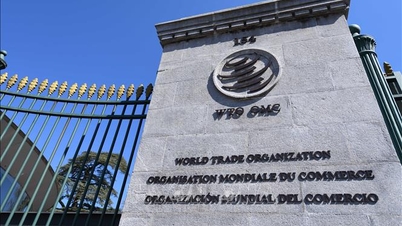



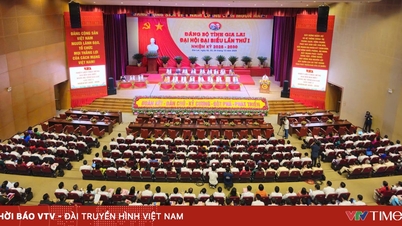



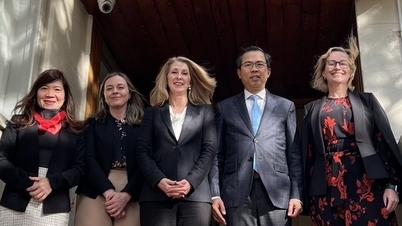


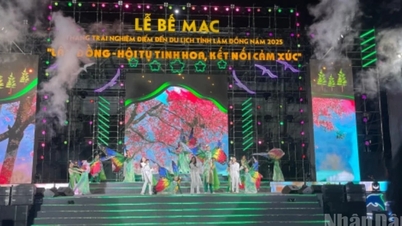

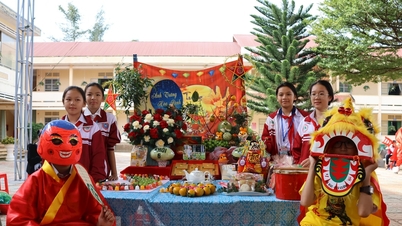


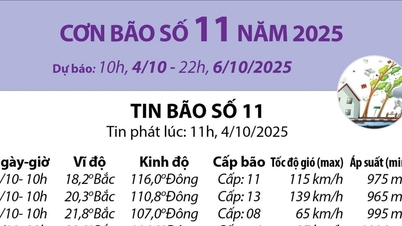
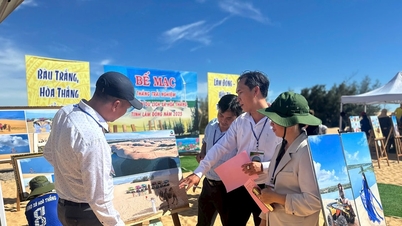




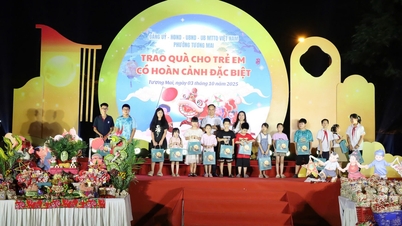
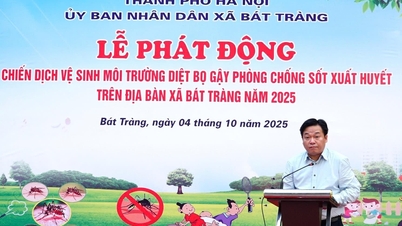
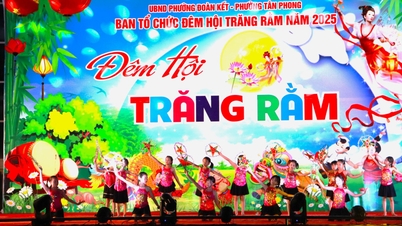
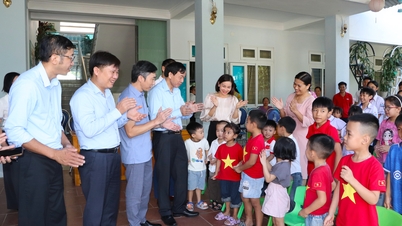
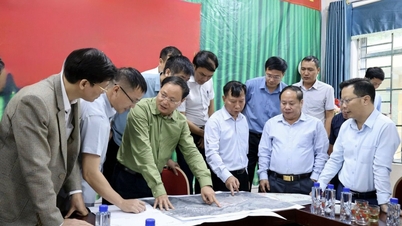
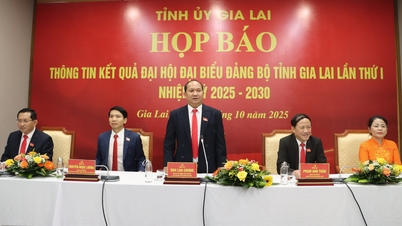
























![[VIDEO] Summary of Petrovietnam's 50th Anniversary Ceremony](https://vphoto.vietnam.vn/thumb/402x226/vietnam/resource/IMAGE/2025/10/4/abe133bdb8114793a16d4fe3e5bd0f12)

![[VIDEO] GENERAL SECRETARY TO LAM AWARDS PETROVIETNAM 8 GOLDEN WORDS: "PIONEER - EXCELLENT - SUSTAINABLE - GLOBAL"](https://vphoto.vietnam.vn/thumb/402x226/vietnam/resource/IMAGE/2025/7/23/c2fdb48863e846cfa9fb8e6ea9cf44e7)

















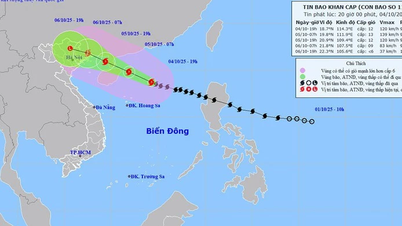

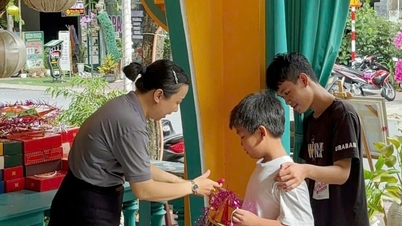













Comment (0)